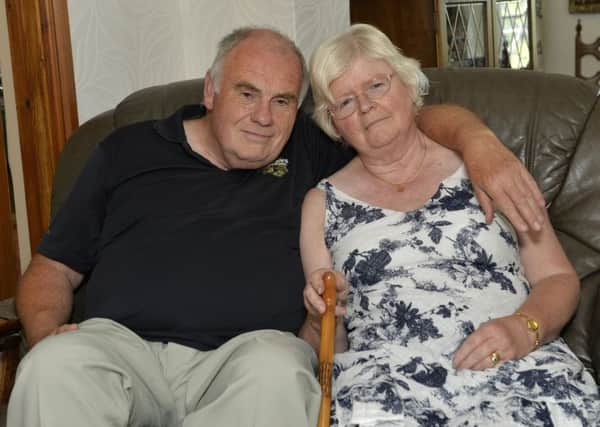Eastbourne residents’ upset at withdrawal of Parkinson’s nurse


Campaigners say funding had been ring-fenced to hire a much-needed third specialist nurse to support people in Eastbourne and beyond but this has been reconsidered by the East Sussex Healthcare NHS Trust (ESHT).
Veronica Lees, 68, was diagnosed 10 years ago, and has suffered almost 100 falls in the past three years. She described her Parkinson’s nurse as “essential” to her life.
Advertisement
Hide AdAdvertisement
Hide AdBut the grandmother said, “I was furious when I found out. How can [my nurse] cope with so many patients? There’s more of us having it every year. The funding was there, they have just frozen it. She needs help. It’s appalling. Absolutely appalling.”
Her husband Mick, 70, is a member of the Eastbourne branch of Parkinson’s UK and has written to the health trust expressing his concerns.
He said, “We are not just worried about ourselves, but with so many other people being involved.
“It’s going to affect people who are newly diagnosed because they are going to have to wait longer and longer to get the right help.
Advertisement
Hide AdAdvertisement
Hide Ad“I’d hate to think of somebody in a worse situation not being able to talk to somebody or get the right medication.”
Parkinson’s UK guidelines recommend a nurse should have no more than 350 patients but the Eastbourne nurse is said to have more than 600.
Responding to concerns, consultant neurologist Dr Marianne Kasti said, “This isn’t just about nursing numbers. As part of a review we have looked at the roles and capacity of the wider nursing and medical teams to meet the rapidly growing local need.”
She said four additional clinics had been added each week, which current Parkinson’s nurses are able to support following “a review” of their roles,. She said, “Transformation is essential within the NHS as services evolve and demand increases.”